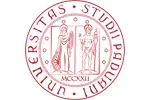We're moving! This site will be relocating to goingto.university in 2026. Please update your bookmarks to the new address.


| The award | How you will study | Study duration | Course start | Domestic course fees | International course fees |
|---|---|---|---|---|---|
| MSc | Full-time | 2 years | October | - | EUR 2739 per year |
The Master’s degree programme trains professionals able to interpret, formalize and solve complex problems related to the design, operation and optimization of industrial processes where chemical, physical and biochemical transformations of material and energy are carried out. Focusing on raw materials selection, process and equipment design and operation, safety and environmental management as well as cross-disciplinary issues, the programme offers both strong theoretical and application-oriented courses fostering skills and knowledge for sustainable engineering deployment in future society.
This is a European-accredited Master engineering program according to the EUR-ACE system.
Programme structure
1st Year (required courses): Multiphase thermodynamics and transfer phenomena; Separation unit operations; Chemical reaction engineering; Process and Fluid dynamics simulation; Industrial process safety and risk analysis; Industrial chemical processes
2nd Year (required courses and activities): Process dynamics and control; Process design; Final project
Elective courses (short list): Machine Learning for Process Engineering; Electrochemical energy storage technologies; Process technologies for carbon-neutral fuels; Membrane separation processes; Particle technology for the food and pharmaceutical industries; Polymer processing and recycling; Strategic environmental management; Business management; Food and bioproduct technologies; Industrial Processes for Bio-based and Specialty Chemicals; Fundamentals of 3D Bioprinting.
Career opportunities
Graduates are freelance or employed engineers working in chemical, petrochemical, oil, food, pharmaceutical, biotechnological industry; electronics, automotive and aerospace manufacturing industry; production, processing, and recycling of materials; energy; engineering and construction; environmental protection, circular economy, process safety; patent offices, academic and research institutions.
Apply now!
Our tuition fees will not exceed 2700 euros per year. Scholarship and fee waivers are available for international students, for more information visit our website.
Bachelor diploma (or equivalent)
English language
B2 level (CEFR) or equivalent
Please check out this link for the full list of accepted certificates, minimum scores and exemptions
Below are some suggested courses at other providers that you may also be interested in:
Marketing Management - Digital Business Concepts Bachelor Degree
Fontys Economy Tilburg
Find out moreMSc International Business 4.0 - Corporate Finance & Fintech MSc
ESSCA School of Management – Online Programs
Find out moreIf you do not meet the entry requirements for this course then consider one of these postgraduate preparation courses from another institution:
Graduate Diploma of Engineering (Safety, Risk and Reliability)
Engineering Institute of Technology
Find out moreGraduate Diploma in Law/Common Professional Examination GDL/CPE
Northumbria University Newcastle
Find out moreThere are 59 other courses listed from University of Padua. A selection of these are displayed below:
Join the StudyLink email list and never miss a chance to turn your study abroad dreams into reality!

Find out more about studying in Italy